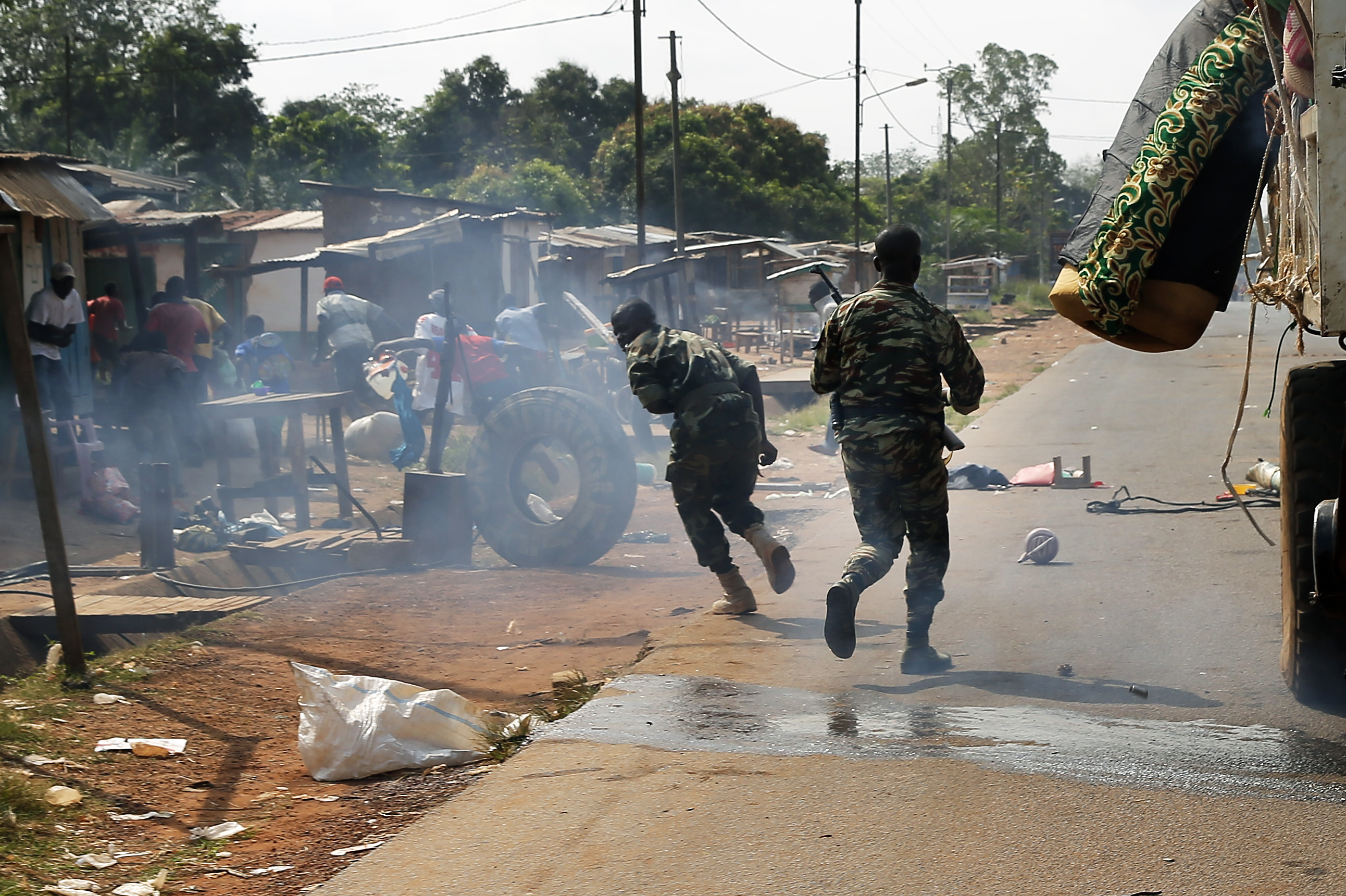
Editor's note: This blog was written by Enough Project intern Jasper Kubasek.
On September 15th the world looked on as the United Nations deployed its peacekeeping mission to the Central African Republic and the United States reopened its embassy in the nation’s capital city Bangui. It was a day characterized by prospective hope and optimism, as US Secretary of State John Kerry vowed that the United States would join forces with international partners to help bring stability to a country that has become entrenched in sectarian fighting between the largely Christian Anti-Balaka militia and the Muslim Seleka rebels. Yet in Bangui, just one month later, the day is characterized not by hope and optimism, but rather by killings and chaos as the capital experiences a surge in violence.
The latest bloodshed began on September 29th, snowballing out of control in a sequence of tit-for-tat revenge attacks that spurred brutal violence. By October 8th tensions reached new heights after seven people lost their lives in the series of violent exchanges, culminating in the decapitation of a Muslim man. Elements of the Anti-Balaka burned his dismembered body in the street.
Gunfire continued unabated throughout the night of October 8th and on the following morning aid workers collected 12 bodies and treated more than 20 wounded. Anti-Balaka members and criminal gangs have the city in a state of lockdown, blocking roads with stones and burning tires. Humanitarian agencies have been forced to suspend most of their activities and must now take great risks when they respond to lifesaving emergencies. This latest uptick in violence occasioned the first death of a U.N. peacekeeper in the country.
As the situations in Bangui worsens, it seems that the suffering knows no bounds. UN officials say that at least three children have been killed. One eight-year old boy was hit with a stray bullet, while two others were executed based on suspicions that they were spying. These latest events indicate that not only have children become a significant casualty of CAR’s armed conflict, but that they are also targeted recruits for the armed groups.
The pressure that this escalation is putting on humanitarian actors, in regards to both safety and capacity for impact, continues to build. Just a few days ago four peacekeepers were wounded as Anti-Balaka groups ambushed a UN police patrol. Meanwhile, employees from the International Committee of the Red Cross (ICRC) were subject to direct threats when they attempted to recover dead bodies following attacks. Jean-Francois Sangsue, head of the ICRC delegation in Bangui said, “Without security, we cannot do our work and save lives.” On Tuesday, the UN expressed alarm at the situation, acknowledging that the outbreak is seriously hampering humanitarian activities.
When the UN took over the AU’s mission in mid-September, it represented a hopeful new beginning for peacekeeping in CAR. In the wake of international reinforcement, how is it possible that such an escalation of violence could occur in the nation’s capital city? The answer is not entirely clear, and the conflict as a whole is becoming increasingly complicated. While in the past Seleka groups have been responsible for surges in violence, this most recent uptick seems to be driven by uncontrolled Anti-Balaka contingents. A majority of Bangui’s Seleka population has fled the city, and civilians looking to protect themselves don’t know who to oppose. There is also a sequence of political developments that should be kept in mind when attempting to comprehend this increasing instability. On Monday October 6th, the Anti-Balaka militia, citing a loss of confidence due to alleged pilfering of funds, demanded that interim president Catherine Samba Panza step down along with all members of the her transitional government. Samba Panza’s government has responded with serious accusations, suggesting that this increase in violence is part of a plot to provoke a coup, although it refrained from specifying the culprits, opting for a more ambiguous “coalition of negative forces.”
In the past four days at least six more people have been killed, some burned alive, as Anti-Balaka clash with U.N. peacekeepers in the areas near the airport and surrounding Samba Panza’s residence. In the past week at least 3000 people have been displaced by the violence and 159 wounded have been received by medical facilities.
On September 26th, in a declaration that highlighted the enormous time and effort it would take to rebuild this war-torn nation, UN secretary general Ban Ki-Moon advised the onlooking world that, “We must be there for the people of CAR. Let us pledge to stay the course and help them chart a path to reconstruction, reconciliation, and the rule of law.” Today, as Bangui plummets back into violence and insecurity, it is imperative that this message not be forgotten. In pursuing this aim, it is essential that actors proceed with the most effective and supportive methods. Earlier this month, the Enough Project released a report highlighting concrete steps that members of the international and regional community should take to support CAR’s transition to peace. It stresses the importance of local reconciliation initiatives, prosecuting atrocity crimes, and the demobilization and reintegration of armed combatants.
Photo credit: Central African Republic policemen chase looters attacking a broken-down truck as thousands of Muslim residents from Bangui and Mbaiki flee Bangui in a mass exodus using cars, pickups, trucks, lorries and motorcycles, escorted by Chadian troops Friday Feb. 7, 2014. (AP Photo/Jerome Delay)

